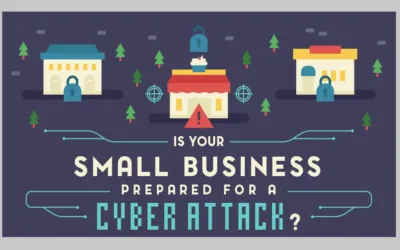In today’s digital age, where our lives are intricately woven into the online world, practicing good cyber hygiene is essential. Just as personal hygiene protects us from illness, cyber hygiene safeguards us from digital threats. In this comprehensive guide, we will explore the best practices for maintaining excellent cyber hygiene, ensuring a safer and more secure online experience for you and your digital assets.
Understanding Cyber Hygiene: A Digital Necessity
Cyber hygiene refers to the practices and precautions taken to maintain the health and security of your online presence. It involves adopting habits that protect your sensitive information, privacy, and digital devices from cyber threats such as malware, phishing attacks, and identity theft. Just as washing hands prevents the spread of germs, adhering to cyber hygiene principles prevents the spread of digital vulnerabilities.

Why Cyber Hygiene Matters: Protecting Your Digital Life
- Safeguarding Personal Information: Cyber hygiene ensures that your personal information, including financial data, login credentials, and social security numbers, remains confidential and out of the hands of cybercriminals.
- Preventing Identity Theft: By adopting secure practices, you reduce the risk of identity theft, where malicious actors use your personal information to commit fraud, make unauthorized purchases, or even apply for loans in your name.
- Avoiding Financial Loss: Cyber hygiene practices protect you from financial losses resulting from online scams, fraudulent transactions, or ransomware attacks that can lock your files until a ransom is paid.
- Preserving Online Reputation: Maintaining good cyber hygiene prevents unauthorized access to your social media accounts, ensuring that your online reputation remains intact without the risk of malicious posts or impersonation.
Best Practices for Cyber Hygiene: Your Digital Defense
- Keep Software Updated: Regularly update your operating system, applications, and antivirus software. Software updates often include security patches that protect your system from known vulnerabilities.
- Use Strong, Unique Passwords: Create complex passwords for each online account, incorporating a mix of uppercase and lowercase letters, numbers, and symbols. Consider using a reputable password manager to generate and store unique passwords securely.
- Enable Two-Factor Authentication (2FA): 2FA adds an extra layer of security by requiring a secondary verification step, such as a text message or authentication app, in addition to your password. Enable 2FA wherever possible to enhance your account security.
- Beware of Phishing Attempts: Be cautious of unsolicited emails, messages, or links asking for personal or financial information. Verify the sender’s authenticity before clicking on any links and avoid sharing sensitive data online.
- Secure Your Wi-Fi Network: Change the default password of your Wi-Fi router to a strong, unique password. Use WPA3 encryption, the latest and most secure Wi-Fi protocol, to protect your network from unauthorized access.
- Regularly Back Up Your Data: Schedule automatic backups of your important files to an external hard drive or a secure cloud service. Regular backups ensure that your data can be restored even if your device is compromised.
- Educate Yourself and Others: Stay informed about the latest cybersecurity threats and educate your family, friends, and colleagues about safe online practices. Knowledge and awareness are powerful tools in the fight against cyber threats.
Cyber hygiene aims to maintain hardware and software’s basic health and security, ensuring they are protected from threats such as malware. Practiced regularly, it helps to keep data safe and secure. As with any habit you want to entrench, cyber hygiene requires routine and repetition.
Building a routine around cyber hygiene will help prevent cybercriminals from causing security breaches or stealing personal information. It will also help you keep up to date with software and operating systems. As a concept, cyber hygiene has increased in relevance since the Covid-19 pandemic, as more people around the world working remotely led to a rise in cybercrimes.
Poor Cyber Hygiene
On the other hand poor cyber hygiene is like leaving your front door wide open while you’re on vacation! It’s akin to inviting digital chaos into your life. Neglecting software updates is like ignoring your grandma’s calls – it might seem harmless until you realize you’ve missed out on her secret cookie recipe! Using weak passwords is like putting your house key under the doormat – convenient, but oh-so-risky. Clicking on suspicious links? Well, that’s like taking candy from a stranger; it might look sweet, but it’s probably a trap.
Poor cyber hygiene is a bit like wearing mismatched socks to a fancy event – it’s embarrassing and makes you an easy target for cyberbullies. It’s akin to not washing your hands after using a public restroom – you’re just asking for trouble! Ignoring those antivirus updates? That’s like letting your plants wither away – a little care goes a long way!
Think of poor cyber hygiene as the digital equivalent of leaving your bike unlocked in a busy city; it might be there now, but it won’t be for long! It’s like putting a “kick me” sign on your back in the cyberworld – you’re practically begging for trouble. So, let’s all buckle up and practice good cyber hygiene, because in this digital dance, it’s better to cha-cha safely than to tango with disaster!
Conclusion: Empowering Your Digital Journey
In the ever-evolving landscape of cyberspace, your safety and security are paramount. By incorporating these cyber hygiene practices into your digital routine, you empower yourself to navigate the online world confidently and securely. Remember, your digital well-being is in your hands. Stay vigilant, stay informed, and let good cyber hygiene be your trusted companion on your digital journey. Together, we can create a safer online environment for all. Below is VirtualDoers cyber hygiene checklist:
- Use Strong, Unique Passwords
- Enable Two-Factor Authentication (2FA)
- Regularly Update Passwords
- Be Cautious with Emails
- Keep Software Updated
- Secure Your Wi-Fi Network
- Use a Reputable Antivirus Program
- Regularly Back Up Your Data
- Be Wary of Social Engineering
- Educate Yourself
- Use Secure Connections
- Regularly Monitor Your Accounts





